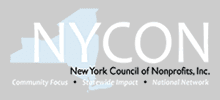The nation’s economic difficulties are felt in many ways. Some of the pain is measured by numbers on the front pages of newspapers—monthly unemployment figures and home foreclosure reports, for example. But other effects are less noticeable from a distance. Cassandra Sheets, L.M.S.W., gets close enough to notice as a fellow of Ladder to Leadership: Developing the Next Generation of Community Health Leaders, a program of the Robert Wood Johnson Foundation, in collaboration with the Center for Creative Leadership.
Sheets is the CEO of the Center for Family Life and Recovery (CFLR) in Utica, New York—a role she took on just a few months ago, when the Mohawk Valley Council on Alcoholism/Addictions and Family Services of the Mohawk Valley merged. The new organization provides a range of prevention, treatment-support and recovery services to individuals and families.
Such services are always in demand, but the nation’s economic difficulties have made the need more pressing. “We are finding and hearing from clients every day that the stressors continue to compound as they try to make ends meet,” Sheets says. “We try to be responsive. Our aggression reduction program for youth and adults, for example, helps them put the challenges into perspective while providing healthy alternatives and choices. Our employee assistance program helps people find the help they need to keep their jobs, and remain healthy employees and family members. And our prevention program works with youth and adults to provide information on what they can do to make healthy choices despite the sometimes unhealthy environments they live in.”
The same economic challenges affect CFLR’s funding, as well. Indeed, one of several reasons for the merger was to secure the funding base for the organizations’ programs as the economic recovery limps along. Neither organization faced imminent financial peril, but Sheets and other organizational leaders hoped to build long-term security. “We saw a merger as a great way to stretch our dollars, as well as a way to build stronger programs for our clients,” Sheets says. “In that way, we really want to be a role model for agencies, urging them to partner with one another so as to make services more accessible and affordable.”
But the merger is not a fiscal panacea: CFLR recently had to stop offering income-based sliding-scale fees for its general individual and family counseling services at two of its sites, after losing funding from the local United Way.
The new organization is also dealing with the various strains that come with refining its mission, merging staff and systems, and more. Sheets credits the Ladder to Leadership program with helping her develop the skills to steer the organization through this challenging period in its young, post-merger life. “It gave me great confidence that I could lead this effort and move it forward,” she says. “For me, at least, it was really a life transformation on many levels, not just in terms of leadership, but also individually.”
For more info, visit here.
Subscribe to:
Post Comments (Atom)













No comments:
Post a Comment